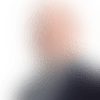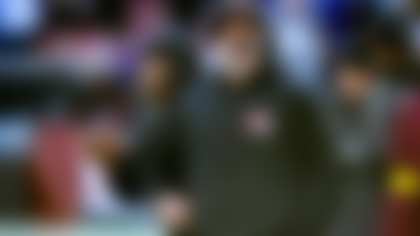Training camps swing open with the familiar storylines covering big-ticket offseason acquisitions and head-coaching changes. Once the practices heat up over the ensuing week or two, another collection of old faces begins to resurface in new places. The aftershocks of January's firings, hirings and promotions are first felt in late July, when new shot-callers and play-designers begin honing their craft for the season ahead.
A change at coordinator on either side of the ball can swing a season and make or break a Super Bowl bid. Can the Bears' defense stay atop the charts without Vic Fangio? Will Fangio's new offensive guru lead a turnaround in Denver? Can the Vikings, Falcons or Cowboys make a deep playoff run with their own offensive overhauls? Let's examine a handful of the new faces under the microscope in 2019:
1) Gary Kubiak, Minnesota Vikings assistant head coach/offensive advisor
Incumbent coordinator Kevin Stefanski will retain play-calling duties for an offense that deteriorated over the course of the season before his promotion to an interim role in December, caught between head coach Mike Zimmer's desire for a run-oriented attack versus exiled coordinator John DeFilippo's inclination to dial up passes behind an increasingly unreliable blocking unit. Make no mistake, though: Stefanski will be operating Kubiak's trademark boot-action scheme, the hallmark of which is a symbiotic marriage of the outside zone run and the misdirection pass.
One of baseball's trendy expressions is a concept called tunneling, in which the pitcher releases his two primary pitches -- fastball and slider, for example -- from the same arm slot, thereby keeping the batter guessing for a fraction of a second. Kubiak's offense works in similar fashion, tunneling the run plays through the same formations as his back-breaking play-action passes, a camouflaged combination that not only helps maintain a balanced offense but also forces defenses to pause for a crucial moment after the ball is snapped. This system qualifies as having godsend status for quarterback Kirk Cousins, running back Dalvin Cook and an offensive line reshaped to feature first-round pick Garrett Bradbury as the athletic pivot in the center of the action.
Kubiak has consistently produced top-10 offenses without the benefit of elite quarterbacks. An ideal fit for the new regime, Cousins is the only NFL signal-caller with at least 1,000 passing yards and a 100 or better passer rating on play-action throws in each of the past four seasons, per Pro Football Focus. Cook is one of the most talented tailbacks ever to play under Kubiak and new offensive line coach/run-game coordinator Rick Dennison, who has served on the same staff as Kubiak for 18 seasons in a variety of roles with various teams, with the tandem demonstrating an uncanny knack for turning undrafted players and late-round fliers into 1,000-yard rushers. Perhaps most importantly, a beleaguered offensive line that led the league in Football Outsiders' blown blocks metric won't be tasked with holding protection for seven-step quarterback drops and deeper passing routes.
Just as Kubiak learned the play-calling ropes from one of the all-time greats in Mike Shanahan, Stefanski couldn't ask for a better mentor as he undertakes the tall task of resurrecting an offense that gradually grew moribund at the hand of DeFilippo.
2) Chuck Pagano, Chicago Bears defensive coordinator
Whereas Kubiak is attempting to fix a glaring problem in Minnesota, former Colts head coach Chuck Pagano finds himself at the helm of a dominant defense that finished as one of the NFL's 10 best since 1986, according to Football Outsiders' DVOA metric. That's the good news. The challenge he must overcome is replacing one of the game's most respected defensive minds while seeking to reverse a trend that has seen the last 10 defensive DVOA leaders suffer a dropoff in effectiveness the next season.
The message Pagano is sending to his star-studded defense this summer? "It's much harder to manage success than it is failure."
The defenses of departed coordinator Vic Fangio (who is now head coach in Denver) in San Francisco were among the league's stingiest early this decade. His Chicago defenses improved every year since his 2015 arrival. He teamed with defensive backs coach Ed Donatell to develop a secondary that ended nearly 15 percent of drives with an interception, an aberrantly high figure that easily paced the NFL in 2018. Pagano surely understands that efficiency will regress to the mean, along with the defense's league-high turnover rate and a relatively clean campaign, from an injury perspective.
While it's a good bet that Pagano will dial up blitzes more frequently than Fangio ever did, his underwhelming track record in Indianapolis (24th in points per game and 30th in yards per game from 2012 through 2017) offers few clues as to the Bears' future performance. In his lone season as an NFL coordinator, by contrast, Pagano's 2011 Ravens placed third in scoring defense as well as total defense.
Bears fans should brace for a slight decline due to the aforementioned regression, a tougher schedule and a slight downgrade in the secondary, where Ha Ha Clinton-Dix and Buster Skrine replace Adrian Amos and Bryce Callahan, but this remains one of the NFL's deepest and most talented position groups.
3) Rich Scangarello, Denver Broncos offensive coordinator
Speaking of Fangio's long-awaited debut in the head-coaching ranks, he teamed with Broncos general manager John Elway to coax Kyle Shanahan understudy Rich Scangarello away from San Francisco to orchestrate Denver's offense. Upon hiring "Scangs," Elway pointed to the similarities between Scangarello's system and the one in which new Broncos quarterback Joe Flacco authored a career year during Kubiak's lone season (2014) as Baltimore's offensive coordinator.
"Philosophically, my roots have always been in the zone, run system that Kyle Shanahan has run," Scangarello explained in late January.
His offense will feature a slew of new starters, taking advantage of several key players returning from injury as well as the expected impact from former Dolphins right tackle Ja'Wuan James and the rookie duo of left guard Dalton Risner and tight end Noah Fant. James and Risner will help overhaul an offensive line that surrendered the second-most blown blocks last year, per Football Outsiders. Even better, one of the league's true line-coach wizards fell into Scangarello's lap when Mike Munchak moved to Denver after allowing his contract to expire in Pittsburgh. With a stalwart blocking unit up front, the Steelers finished in the top-seven for offensive DVOA in each of Munchak's five years.
The retooled blocking scheme should be music to the ears of Flacco, who had the league's lowest passer rating under pressure (37.1) in a 2018 first half that was otherwise his most promising in four years. Elway's Broncos have suffered through Pro Football Focus' lowest-graded quarterbacks since Peyton Manning retired in 2016. With Scangarello and Munchak in his corner, Flacco should put an end to that trend. The question is whether the improvement will be modest or major in Fangio's Denver debut.
4) Dirk Koetter, Atlanta Falcons offensive coordinator
The Shanahan Family's fingerprints are all over this list. When Steve Sarkisian failed to live up to Kyle Shanahan's record-breaking 2016 standards, the Falcons went back to the future to find his replacement. Matt Ryan's new play-caller is Koetter, the former Buccaneers head coach and Ryan's coordinator in Atlanta from 2012 through 2014. Koetter's run-game counterpart? Former Titans head coach and noted exotic smashmouth advocate Mike Mularkey, Ryan's coordinator from 2008 through 2011.
It's tough to tell how Ryan will fare under that duo this time around, because he's a different quarterback, undergoing a transformation from a relatively conservative passer prior to Shanahan's arrival into one of football's most prolific downfield bombers the past few years. Coach Dan Quinn wants to keep the outside zone concepts intact, forcing his new voices to adapt to the system Ryan has been running rather than the other way around. That shouldn't be an issue for Koetter, whose "Air Coryell" vertical spread offense relies on downfield routes to spread the field. That same aerial attack generated top-10 production in terms of points and yards during Koetter's first go-around with Ryan.
Ryan's 2018 numbers weren't far off from his historically excellent 2016 MVP campaign, the difference being terrible starting field position, porous offensive-line play and an unreliable ground attack. There's reason to believe those problems will be alleviated with a healthier defense, the return of starting running back Devonta Freeman and the addition of first-round blockers Chris Lindstrom and Kaleb McGary.
If Ryan fails to lead Atlanta back to the Super Bowl, it won't be for lack of experience on his coaching staff. Now that Koetter and Mularkey are on board, Quinn estimates 400 years of combined coaching experience on his team.
5) Kellen Moore, Dallas Cowboys offensive coordinator
The new bartenders at the Last Chance Saloon, Moore and QBs coach Jon Kitna have their head coach's future on their shoulders. Jason Garrett's contract is currently set to expire after a 2019 season already buoyed in intensity by lofty playoff expectations. The Super Bowl clock is ticking, with franchise legends Jason Witten and Sean Lee working on twilight time, an offensive line nucleus creeping away from its prime and a stable of young stars in need of salary-cap squeezing contracts. This is the year. It has to be the year.
To that end, Moore is billed as the "beautiful mind" capable of injecting a much-needed dose of creativity into an offense that had grown sickly under predecessor Scott Linehan. Although Moore studied with Linehan for seven years in Detroit and Dallas as a player and coach, he has also been influenced by a wide array of formations, shifts and motions courtesy of former Boise State coach Chris Petersen.
"He's honestly one of these young genius phenoms in the game. He's special," quarterback Dak Prescott raved to Dallas-Fort Worth's KRLD-FM in late January. "He knows a lot about the game, just the way he sees the game, the way he's ahead of the game. He can bring a lot to us, a lot of creativity."
Can Moore fix an offense that managed the second-fewest points of the Garrett era in 2018? That's a lot to ask of a first-time play caller who was backing up his own quarterback two years ago. On the bright side, Prescott's offense graduated from feeble (28th in yard per game) to average (16th) following the midseason trade for Amari Cooper. With All-Pro center Travis Frederick back to bolster the once-dominant offensive line and new toys in the form of versatile slot weapon Randall Cobb and rookie backfield pawn Tony Pollard, Moore should have the luxury of tinkering more often than his mentor did.
Moore plans to stay with Linehan's foundation and philosophy, at the same time throwing a changeup at defenses by running different formations, motions and misdirection from similar looks. In the modern showdown between hyper-athletic defenses and imaginative offenses, the young play-calling guru flexes his creativity before the snap to instill that increasingly critical second of hesitations in his vaunted opponent.
Follow Chris Wesseling on Twitter @ChrisWesseling.












